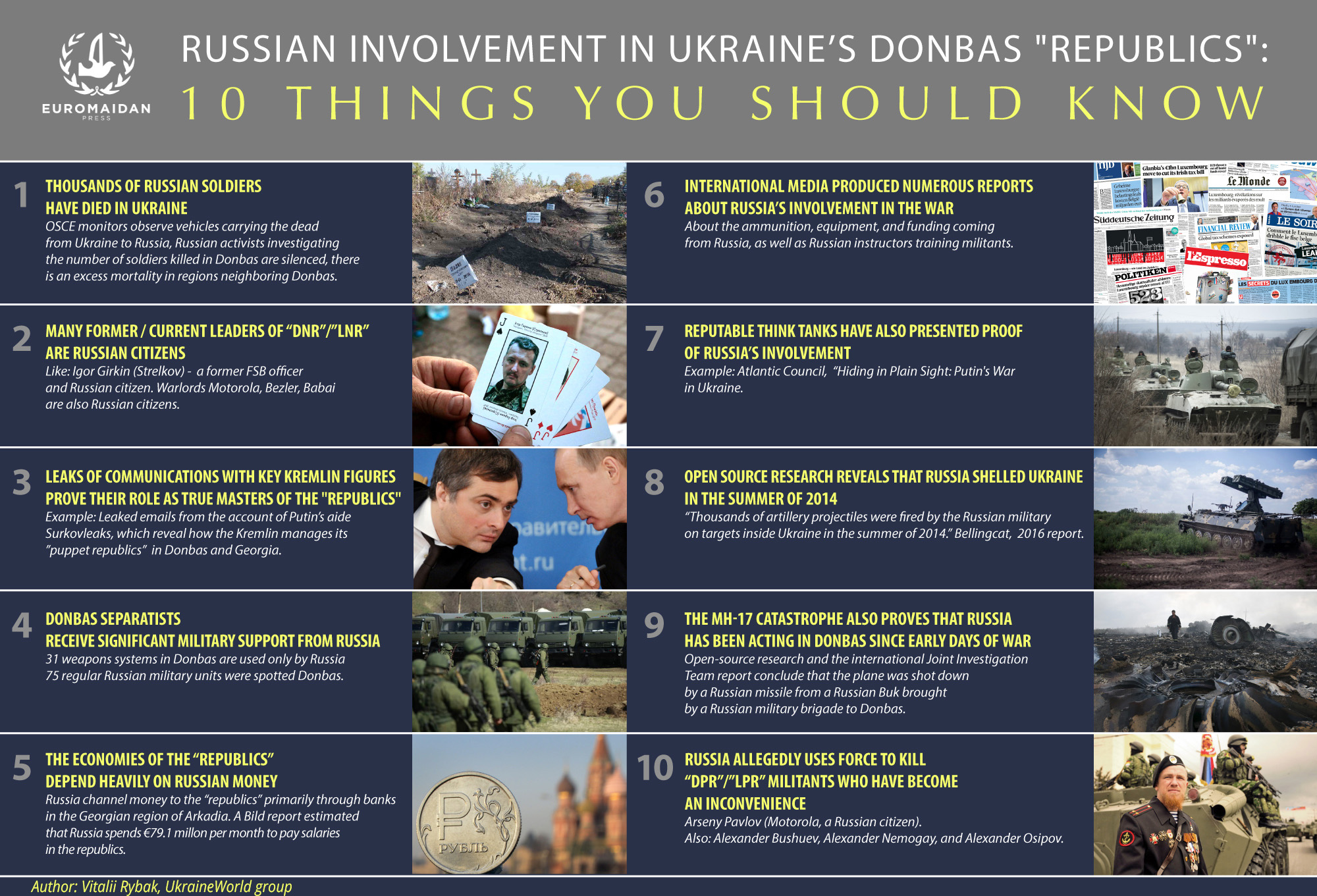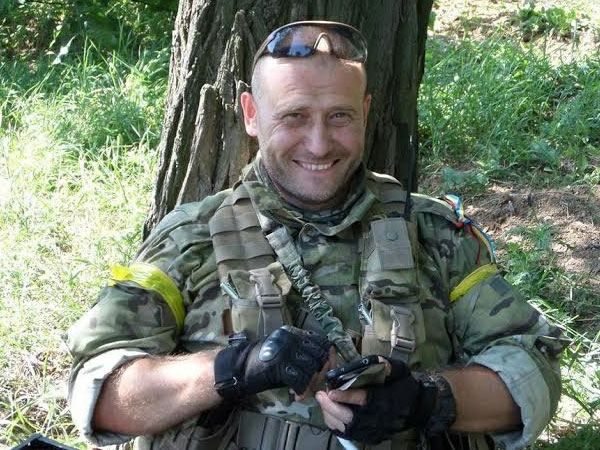On 18 January 2018, the Ukrainian Parliament, or Verkhovna Rada, adopted the law on the reintegration of Donbas in its second reading, with 280 out of the total 450 deputies voted in favor. The law gives Russia the status of an occupying country, makes no reference to the Minsk agreements, and was criticized by human rights organization as failing to defend the interests of people living in the occupied territories of eastern Ukraine.
The law, which lays out a legal framework for Ukraine to deal with the uncontrolled territories of eastern Ukraine and occupied Crimea, was introduced by President Petro Poroshenko, and passed the first reading on 6 October 2017. On 16 January 2018, Parliament resumed discussing the draft law, which gathered 673 amendments. During those days, activists held protests near the Rada, demanding to adopt the law, during which at least 20 people were injured.
President Petro Poroshenko called the adoption of this law “a signal for Crimea and Donbas” that they are part of Ukraine. Meanwhile, the self-proclaimed “Donetsk People’s Republic” called the law a violation of the Minsk agreements, stating that Ukraine is “preparing for war.”
The main provisions of the law

Despite the draft law becoming widely known as the law to “reintegrate,” or “deoccupy Donbas,” it doesn’t deal with neither the former nor the latter, Nastya Stanko wrote. Titled “draft law No. 7163 on special aspects of state policy to ensure Ukraine's state sovereignty in temporarily occupied areas in Donetsk and Luhansk Oblasts,” the law outlines the state policy for the existing situation, when Ukraine doesn’t control a chunk of its territory and has pulled the army near its border, a number of its citizens lives in de-facto occupation, and nearly 30,000 a day cross the border of this territory.
“The adopted law strengthens Ukraine’s position in international courts and rules out the possibility of the participation of Russian peacekeepers in Donbas. But it doesn’t change much inside the country, instead legitimizing what exists de facto,” Viktor Andrusiv, the former Deputy Head of the Donetsk military-civilian administration, told DW.
Tense discussions were held about whether occupied Crimea should be mentioned in the title of the law, but this initiative didn’t receive enough support. However, the introduction mentions the occupation of Crimea, which is defined as 20 February 2014
, citing an existing law. This date is taken from the medal "For return of Crimea" (20 February 2014 – 18 March 2014) by the Ministry of Defense of Russia issued before the start of planned military intervantion.
No Minsk
Despite the insistence of many MPs, the law does not mention the Minsk Agreements, the internationally supervised treaty adopted for the goal of ending the conflict. Instead, the UNGA resolution on Donbas will be used as a base for making decisions. The law defines the mechanism of Ukraine’s realization of its right to self-defense to counter the armed aggression of the Russian Federation, according to art.51 of the UN Charter on the right to individual and collective self-defense.
As Ivan Vynnyk, the secretary of the Committee on national security and defense, told espreso.tv, this was done because:
“the nature of the [Minsk] pact differs from the nature of a legislative normative act. We can’t implement diplomatic and political pacts, which have a tendency to change with time, into the Ukrainian legislature.”
Russian occupation
The law designates Russia as an aggressor country and establishes that the territories of Donetsk and Luhansk Oblasts uncontrolled by Kyiv are temporarily occupied. This includes the land, rivers, lakes, internal sea waters, minerals, and airspace. Russia’s occupation of Ukrainian territories is illegal and does not give Russia any territorial rights. However, the law does not specify a date for the start of occupation of the Donetsk and Luhansk Oblasts.
Russia is held responsible for the moral and material losses inflicted on Ukraine, including the state authorities and citizens. Ukrainian citizens reserve property rights on the occupied territories.
The law gives more power to the Ukrainian President. He is given the right to declare martial law, which will allow using the army in eastern Ukraine without declaring war. It is he who defines the start and end of measures aimed at ensuring national security and countering Russian aggression. As well, he makes a decision on whether Russian servicemen are present on the territory of Ukraine, based on proposals by the Ministry of Defense and Ministry of Interior.
All acts issued by the “occupation administration of the Russian Federation” are declared null and void, except for birth and death certificates.
In addition, persons involved in Russia's armed aggression or involved in the Russian occupation administration are held criminally liable for violating Ukrainian legislation and norms of international humanitarian law.
Neither war, nor anti-terrorist operation
The law does not mention the “Anti-Terrorist Operation,” the term Ukraine hitherto used for defining the armed conflict in Donbas. Neither is it termed a “war.” Instead, the phrase "measures to ensure national security and defense, deterrence and repression of Russian armed aggression" is used.
According to Ukrainian MP Oleksandr Bryhynets, this is because the UN does not have such a legal term, instead relying on a system of other terms to define what is vernacularly defined as war.
"There is no term such as a state of war in the law. There is, like in other laws, a detailed description of of who has which rights, who has obligations. This is another state, which is connected to another type of war, which Ukraine encountered - a hybrid war," he added.
Meanwhile, the Deputy Head of the Ministry of Temporarily Occupied Territories Yuriy Hrymchak explained that mentioning “war” in the law would help Russia:
“We can’t call this a war. Then, basically, we will declare war on Russia. Today Russia says it’s not present in Donbas. But when we declare a war, we’ll start receiving everything which the Russian defense industry can offer.”
The difficulty with defining what constitutes a "hybrid war" will create problems for Ukraine in the future, Roman Bezsmertnyi, the former representative of Ukraine in the Trilateral Contact Group for the Minsk process, told RFE/RL:
"Until the adoption of the law, we could [legally] exist in either a state of peace, or a state of war. Now it's without the ATO, still not in a state of war, but in the state of 'liguidating the armed aggression of the Russian Federation.' This intermediate state between war and peace will be a huge problem in the future. The topic of the hybird war is a politological definition which has no relationship to its legal regulation."
Ukraine’s actions against Russian aggression
Ukraine must take actions to ensure its state sovereignty. This envisions sanctions, as well as mechanisms of international cooperation to preserve and strengthen sanctions against Russia.
Ukrainian authorities will gather information about human rights in the self-proclaimed “republics.” A coordination organ is created to consolidate the state’s position on “repulsing and containing the armed aggression of the Russian Federation.”
Special attention is given to the introduction of martial law
. If it is introduced, a United Operative Staff of the Armed Forces of Ukraine under the management of the General Staff, will be tasked with coordination and control of the situation in the occupied territories of Donetsk and Luhansk Oblasts, instead of the Security Service, which had carried these functions before. This United Operative Staff will directly manage the means of the Armed Forces and other military forces, the Ministry of Internal Affairs, National Police, and State Emergency Situation Service of Ukraine.
To resist Russian aggression, measures are taken in coordination with the General Staff of the Armed Forces of Ukraine, which manages "all forces against the aggression."
Law enforcers and those involved in counteracting aggression can use, "if it is absolutely necessary," weapons and special means against those who violate the law or attempt to illegally enter the zone of counteraction to aggression.
Freedom of movement in Donbas
The law establishes a special regime for Ukrainian citizens for entering the uncontrolled territories, which can be entered only through checkpoints. The commander-in-chief can deny entrance to a checkpoint.
Law enforcers and servicemen are entitled to strengthening security measures if martial law is introduced: to check documents and detain people to confirm their identity; to search citizens and their belongings; to restrict movement of vehicles and pedestrians; to enter residential and other buildings; to use the personal vehicles and means of communication of citizens and organizations for official purposes.
Human rights endangered

In a joint statement, number of human rights organizations have spoken out about five norms of the law which they believe endanger human rights in occupied Donbas. First, the law establishes that Russia is liable to the damages caused to the territory. This may be true, but it will not help those who suffered from the conflict, leaving them alone with their tragedies, which will not help establish reconciliation and unity. Second, the law does not devote enough attention to the protection of rights of citizens in the occupied territory. Third, the powers given to the military are wide, and no control mechanism is specified for control over the use of such powers. Fourth, freedom of movement will be significantly restricted and more regulated, which could lead to a fall of the number of civic organizations working inside the military zone. Fifth, the President is being given additional powers unforeseen by the Constitution, such as deploying the Ukrainian Armed Forces against Russian aggression in Donbas without parliamentary approval.
The latter could have implications for the civilian population living in the military zone. As a lawyer of the Ukrainian Helsinki Union Nadiya Volkova told DW, the state does not undertake its obligations to protect the civilian population as foreseen by European conventions and the Pact on political-civil rights:
“If the president unilaterally adopts a decision to introduce martial law and an operation to liberate these territories starts, virtually nothing is prepared to protect the civilian population. There is no infrastructure for the wounded, for providing food etc. The humanitarian situation there is very difficult, and this is a reason for concern.”
The law awaits a signature by President Poroshenko. It enters into force the next day after it is published.
Read also:
- Ukraine’s draft law on reintegrating Donbas finally says it’s under Russian occupation
- Ukraine’s Donbas-reintegration bill branding Russia “aggressor state” passes first reading
- ‘Reintegration of Donbas will be impossible after five years,’ senior Kyiv official says
- Ukraine re-thinking its approach to Donbas war. Key things to know
- Ukraine considers alternatives to ATO





